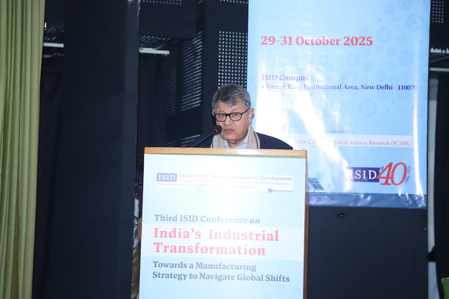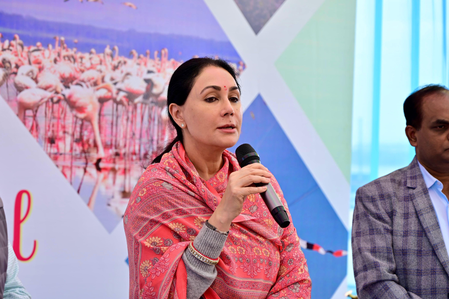
New Delhi, Oct 29 (IANS) NITI Aayog Vice Chairman Suman Bery said on Wednesday that India must lead, not follow in the next industrial revolution, which will be defined by industries such as green hydrogen, electric mobility, semiconductors and advanced materials.
Speaking at a conference by the Institute for Studies in Industrial Development (ISID) here, Bery said India should draw lessons from China’s industrial rise but must forge its own unique path of development.
He emphasised that the next phase of India’s industrial policy needs to focus on inclusion and adaptability rather than merely replicating external models.
He highlighted that the next phase of reforms should prioritise the development of robust supply chains, quality standards and skill ecosystems. This will allow small enterprises to scale up and integrate into global production networks.
Bery underlined that the next phase of India’s industrial strategy must be state and district-led, with the creation of regional industrial clusters, rather than a top-down approach driven from New Delhi.
He noted that while India has achieved progress in large-scale reforms, the next leap will depend on the integration of small and medium enterprises into global and domestic value chains through standards, logistics, and skill alignment.
Bery observed that industrial transformation must ultimately result in productive jobs and higher incomes for the Indian populace.
ISID director and Monetary Policy Committee member, Nagesh Kumar, emphasised that industrial transformation must translate into productive employment and rising incomes.
“The manufacturing sector has the highest backward and forward linkages of all productive sectors, so it can be an engine that drives both growth and job creation,” he explained.
Kumar cautioned that geopolitical uncertainty triggered by the hike in US tariffs poses challenges, especially for India’s labour-intensive exports.
He also emphasised that India must leverage its large domestic market while also deepening integration with global supply chains to diversify export markets through free trade agreements (FTAs).
–IANS
sps/na




